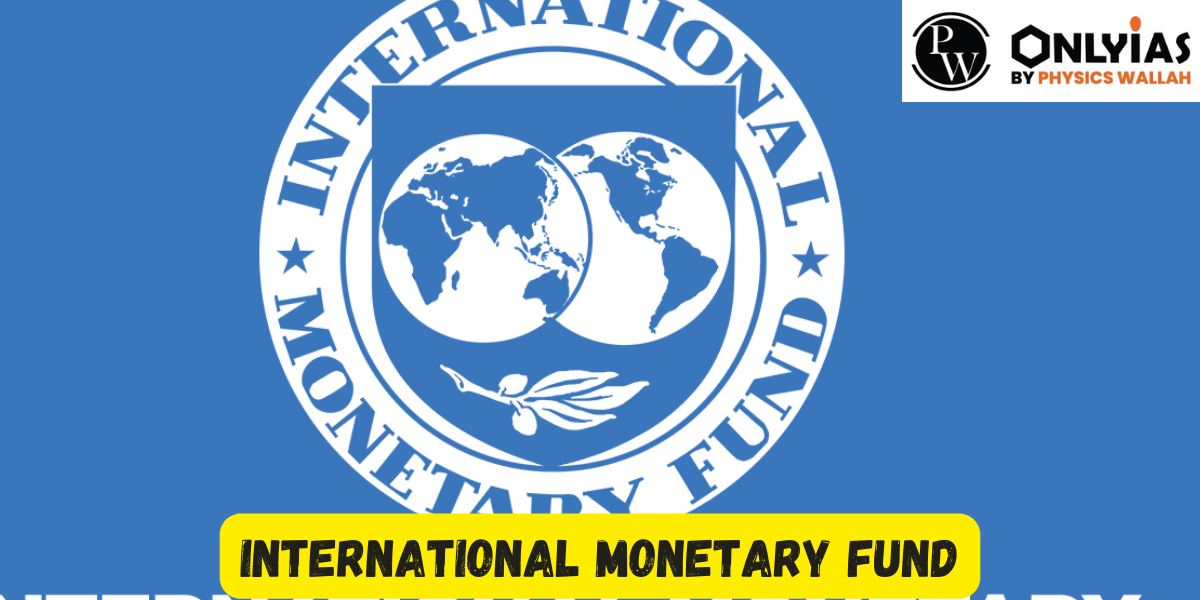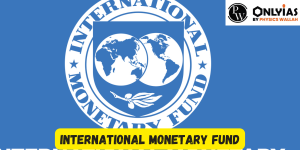
International Monetary Fund: The International Monetary Fund (IMF) is a global institution established in 1944 to encourage international monetary collaboration, facilitate worldwide trade, stimulate economic growth and sustainable development, and alleviate global poverty. It emerged as a result of the Bretton Woods Agreement, which aimed to stabilize international currency exchange rates and establish a framework for international economic cooperation following World War II.
The IMF’s headquarters are located in Washington, D.C., and it boasts 190 member nations. Its primary purpose is to extend financial aid to member countries facing economic challenges by offering loans and other financial instruments. Furthermore, the IMF offers technical guidance and counsel to member states concerning economic policy and management.
International Monetary Fund Headquarters Situated in Washington, D.C., the United States’ capital, the International Monetary Fund (IMF) has its main headquarters. The IMF headquarters complex encompasses two main sections: the main building and a temporary building. The primary edifice, completed in 1998, spans 12 stories and encompasses 1.1 million square feet of floor space. In 2017, a temporary building was erected to provide supplementary office space during the main building’s renovation.
Within the IMF headquarters are the offices of the Managing Director, senior staff members, and other professionals contributing to the IMF’s operations. The complex also features meeting rooms, a cafeteria, a library, and other amenities that support the organization’s functions.
This article provides comprehensive insight into the International Monetary Fund, offering crucial information necessary for preparation of the UPSC Syllabus.

International Monetary Fund: The International Monetary Fund (IMF) was established during the Bretton Woods Conference in July 1944, held in New Hampshire, United States. This gathering brought together representatives from 44 nations, including the United States, the United Kingdom, and France. The primary objective of the conference was to formulate a fresh system of global economic cooperation aimed at preventing a recurrence of the severe global economic downturn experienced in the 1930s.
In recent times, the IMF has remained committed to extending financial aid and technical support to member countries, particularly during economic crises. It has also played a role in fostering international economic collaboration and stability, notably following the global financial crisis of 2008-2009. Presently, the IMF boasts 190 member nations, and its headquarters are situated in Washington, D.C.
The International Monetary Fund (IMF) possesses various goals, which encompass:
Promoting International Monetary Collaboration: The IMF’s objective is to stimulate cooperation among its member countries in order to sustain stability within the international monetary system.
Facilitating Global Trade and Investment: The IMF endeavors to streamline international trade and investment by extending resources to member nations, aiding their balance of payments, and fostering economic expansion.
Encouraging Economic Growth and Sustainable Progress: The IMF aims to propel economic growth and development across member nations while simultaneously advocating for enduring economic policies.
Alleviating Poverty: The IMF seeks to diminish poverty by endorsing economic strategies that foster inclusive growth, job creation, and social safety networks.
Financial Support: The IMF delivers financial aid to member nations grappling with economic challenges, aiming to restore economic stability and encourage sustainable advancement.
In general, the IMF strives to foster international economic stability, curbing the risk of financial crises, and bolstering global economic growth and poverty reduction.
The International Monetary Fund (IMF) encompasses several roles, which encompass:
Fostering International Monetary Collaboration: The IMF endeavors to nurture global monetary stability and mitigate the perils of economic and financial crises through fostering cooperation among its member nations.
Providing Financial Assistance: The IMF extends financial aid to member nations encountering balance-of-payments dilemmas or other economic predicaments. Financial support takes the form of loans or other financial mechanisms, often linked to specific criteria designed to enhance the nation’s economic standing.
Surveillance: The IMF observes economic and financial trends within member nations, proffering policy recommendations to underpin economic stability and growth.
Technical Support: The IMF provides technical aid and training to bolster its members’ capabilities in areas like fiscal policy, monetary policy, and financial regulation.
Research: The IMF issues studies and publications spanning an array of economic and financial topics, encompassing the global economy, financial stability, and poverty mitigation.
Overall, the IMF endeavors to promote worldwide poverty reduction, sustainable advancement, and global economic stability.

The International Monetary Fund (IMF) and the World Bank, both inaugurated in 1944 as part of the Bretton Woods Agreement, are two eminent international institutions. While their overarching objectives involve fostering international economic cooperation and alleviating global poverty, their missions and functions diverge.
The principal role of the IMF involves fostering international monetary cooperation and delivering financial assistance to member nations grappling with economic difficulties. IMF’s financial support generally takes the form of loans, intended to assist countries in addressing balance-of-payments challenges and fostering economic stability. The IMF also monitors economic policies of member nations and extends technical aid and training to assist them in enhancing economic management.
In contrast, the World Bank primarily concentrates on poverty alleviation and sustained development. The World Bank furnishes financial aid and loans to developing nations to bolster projects spanning infrastructure, healthcare, education, and environmental sustainability. The institution also imparts technical guidance and advice to nations, aiding them in augmenting capacity in these domains.
Despite their distinct functions and prerogatives, the IMF and World Bank frequently collaborate on joint initiatives to foster global economic cooperation and mitigate worldwide poverty. In pursuit of their goals, they also collaborate with other international entities, such as the United Nations.
Pakistan’s history is marked by its collaboration with the International Monetary Fund (IMF) to address economic challenges. Over the years, Pakistan has received several IMF loans and financial aid packages, often attributed to balance of payments issues and macroeconomic imbalances.
In July 2019, Pakistan signed a $6 billion Extended Fund Facility (EFF) agreement with the IMF to tackle macroeconomic hurdles such as a substantial fiscal deficit, dwindling foreign exchange reserves, and surging inflation. As part of the program, Pakistan committed to implementing various policy measures, encompassing fiscal consolidation, monetary policy tightening, and structural reforms in sectors like taxation, energy, and finance.
Despite the challenges posed by the COVID-19 pandemic and its repercussions on the economy, the IMF has acknowledged Pakistan’s strides in implementing changes outlined under the EFF program. It underscores the necessity for Pakistan to sustain reforms, realizing inclusive and sustainable growth, surmounting governance obstacles, and enhancing the business milieu.
In sum, the IMF has proven to be a valuable ally in addressing Pakistan’s economic tribulations and fostering lasting prosperity. However, the IMF’s involvement in the Pakistani economy has engendered debates, with critics contending that IMF policy measures bear notable socio-economic ramifications, particularly for vulnerable segments of society.
The International Monetary Fund (IMF) is a subject that may feature in the curriculum of the Union Public Service Commission (UPSC) examination. Applicants might be required to evaluate the efficacy of the IMF in accomplishing its objectives and assess the repercussions of IMF policies and programs on member nations’ economies. Aspiring candidates can enhance their UPSC preparation by engaging in UPSC Mock Tests.
For further insights concerning the UPSC Examination, students can explore the official website of PWonlyIAS UPSC Online Coaching. Consistent practice with mock tests can enhance one’s ability to solve questions effectively, thus aiding in achieving a commendable performance in the IAS Prelims examination.

<div class="new-fform">
</div>